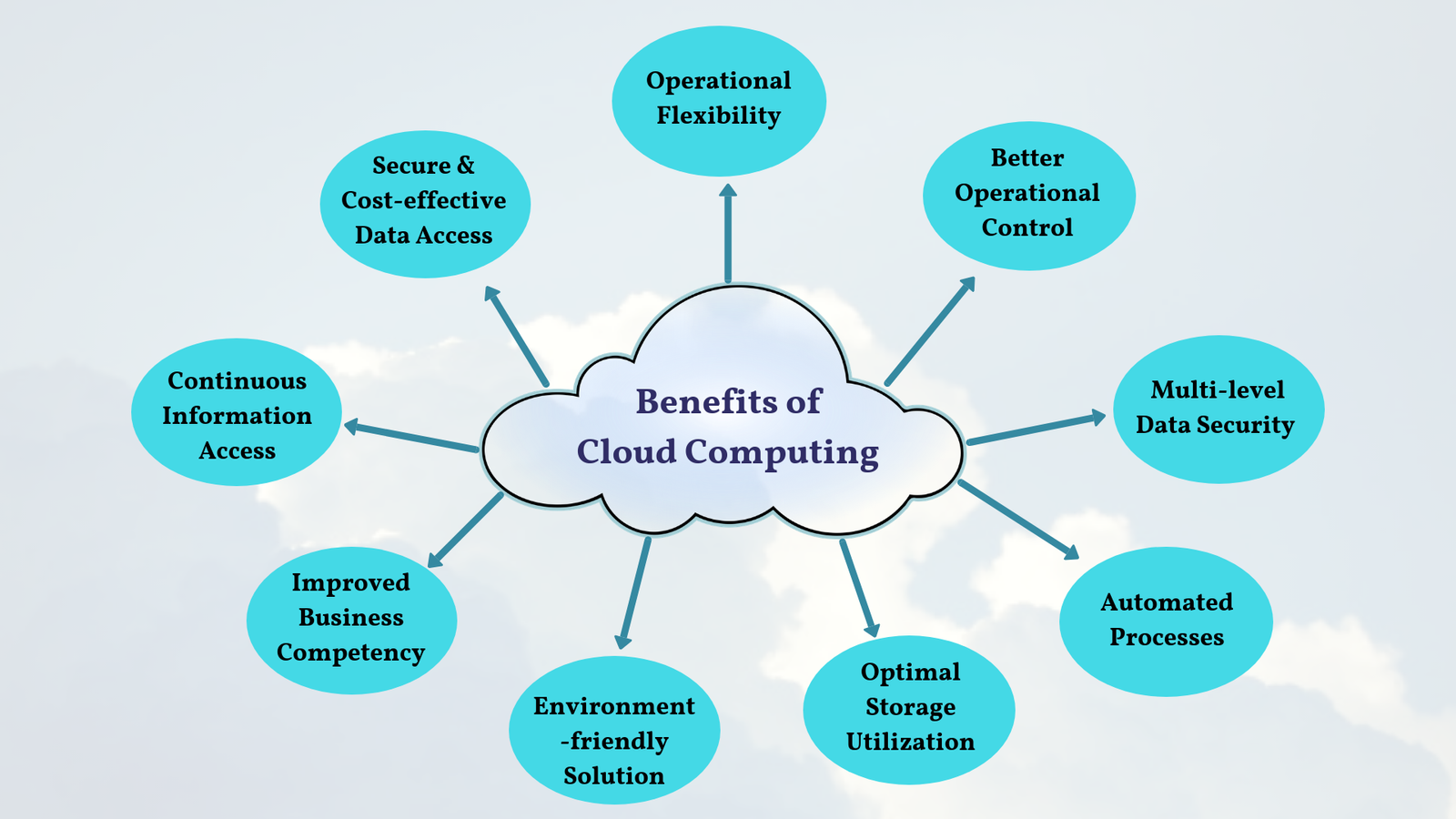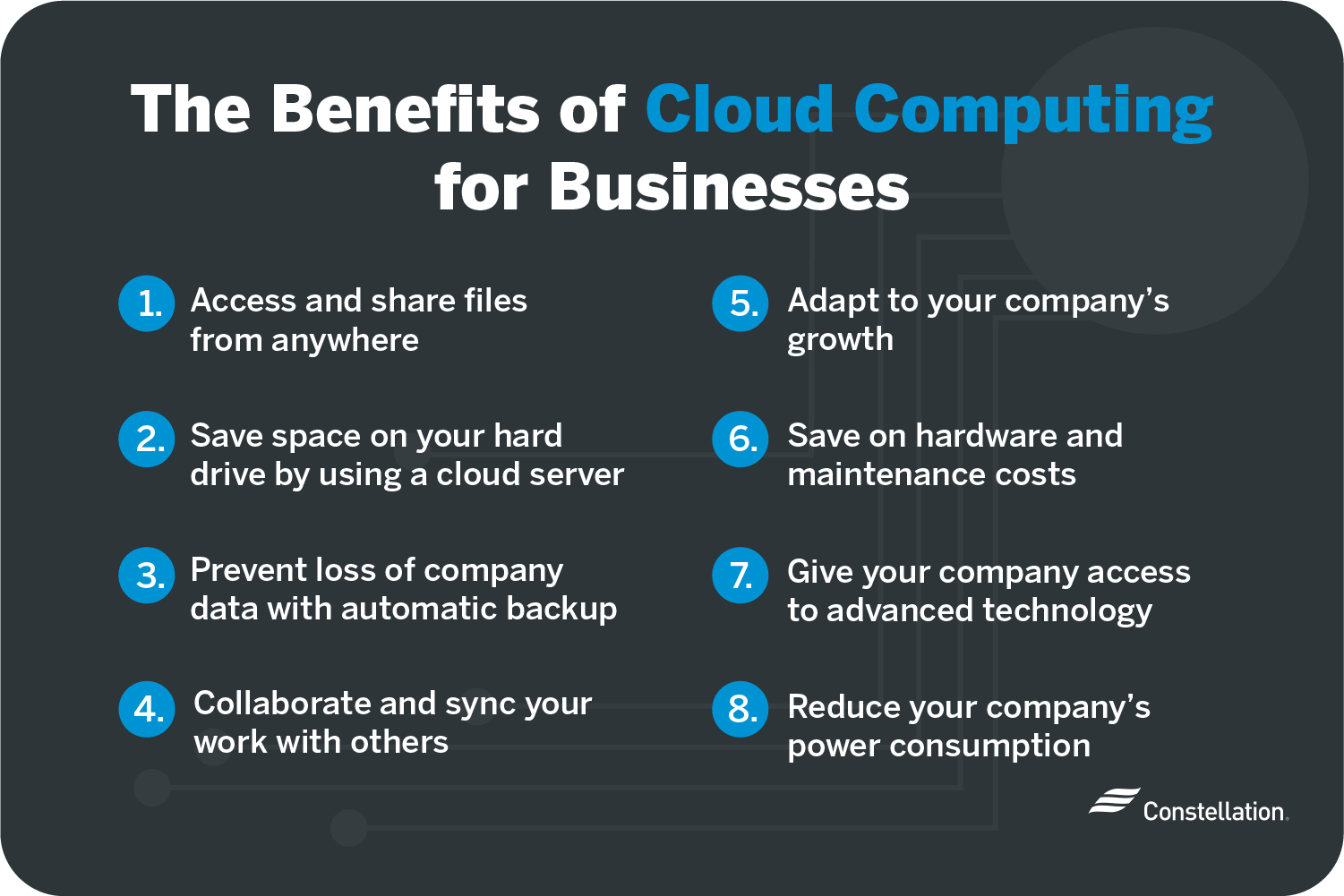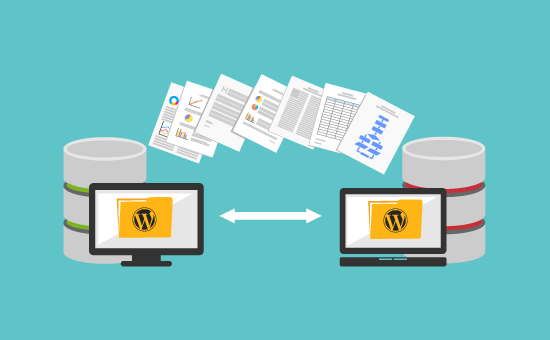Cloud hosting offers a modern approach to web hosting by utilizing multiple servers to host your website or applications. This method contrasts with traditional hosting, where resources are limited to a single server. Understanding the benefits of cloud hosting can help you decide if it’s the right solution for your business.

1. Scalability and Flexibility
Dynamic Resource Allocation: Cloud hosting allows you to scale resources up or down based on your needs. This flexibility ensures you only pay for what you use, which is ideal for businesses with fluctuating demands.
On-Demand Resources: You can easily adjust server capacity, storage, and bandwidth to handle traffic spikes or growth without the need for physical hardware changes.
2. Cost Efficiency
Pay-As-You-Go Model: Cloud hosting operates on a pay-as-you-go pricing model, where you only pay for the resources you consume. This can lead to significant cost savings compared to traditional hosting models.
Reduced Capital Expenditure: With cloud hosting, there’s no need for substantial upfront investment in hardware. Costs are operational and based on usage, which can improve cash flow.
3. High Availability and Reliability
Redundancy: Cloud hosting providers use multiple servers and data centers to ensure high availability. If one server fails, your website or application can seamlessly switch to another server.
Uptime Guarantees: Many cloud hosting providers offer high uptime guarantees (typically 99.9% or higher), which minimizes the risk of downtime affecting your business operations.
4. Enhanced Performance
Global Distribution: Cloud hosting often includes a content delivery network (CDN) that distributes content across multiple servers globally. This reduces latency and improves load times for users regardless of their location.
Resource Optimization: Cloud platforms use advanced technologies to optimize resource allocation, ensuring fast and efficient performance even under heavy loads.
5. Improved Security
Advanced Security Measures: Cloud hosting providers invest heavily in security technologies, including firewalls, encryption, and intrusion detection systems. This helps protect your data and applications from cyber threats.
Data Backups: Regular data backups and redundancy are standard in cloud hosting. This ensures that your data is safe and can be quickly restored in case of an incident.
6. Easy Management and Automation
User-Friendly Interfaces: Most cloud hosting platforms offer intuitive management dashboards that simplify server administration and configuration.
Automated Updates: Cloud providers often handle software updates and security patches automatically, reducing the administrative burden on your IT team.
7. Disaster Recovery and Backup
Automated Backups: Cloud hosting typically includes automated backups and disaster recovery options, ensuring that your data is protected and can be quickly restored if needed.
Quick Recovery: In the event of data loss or system failure, cloud hosting allows for rapid recovery and minimal disruption to your business.
8. Collaboration and Accessibility
Remote Access: Cloud hosting facilitates remote access to your applications and data, allowing your team to work from anywhere with an internet connection.
Collaboration Tools: Many cloud platforms include tools for collaboration and file sharing, enhancing productivity and communication among team members.
9. Environmental Sustainability
Energy Efficiency: Cloud providers often operate energy-efficient data centers with advanced cooling technologies. By sharing resources across multiple clients, cloud hosting can reduce the overall environmental impact compared to traditional hosting.
Green Initiatives: Many cloud hosting providers commit to using renewable energy sources, contributing to a more sustainable IT infrastructure.
10. Suitability for Various Business Needs
Startup-Friendly: Cloud hosting is ideal for startups and small businesses due to its low upfront costs and scalability.
Enterprise Solutions: Larger businesses benefit from the advanced features, high performance, and security offered by cloud hosting.
Conclusion
Cloud hosting offers numerous advantages, including scalability, cost efficiency, high availability, and improved performance. Its flexibility and advanced features make it a viable option for businesses of all sizes. By understanding the benefits and assessing your specific needs, you can determine if cloud hosting is the right solution for your business.




